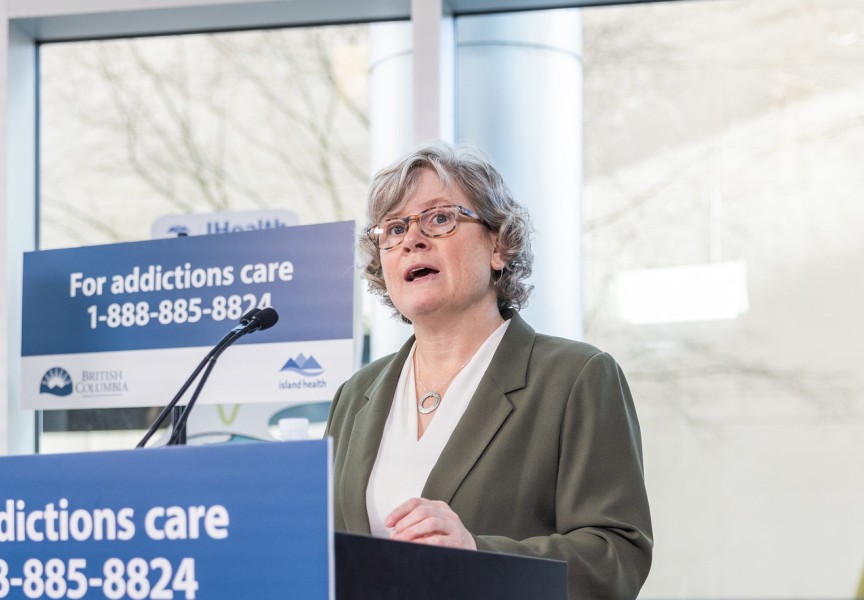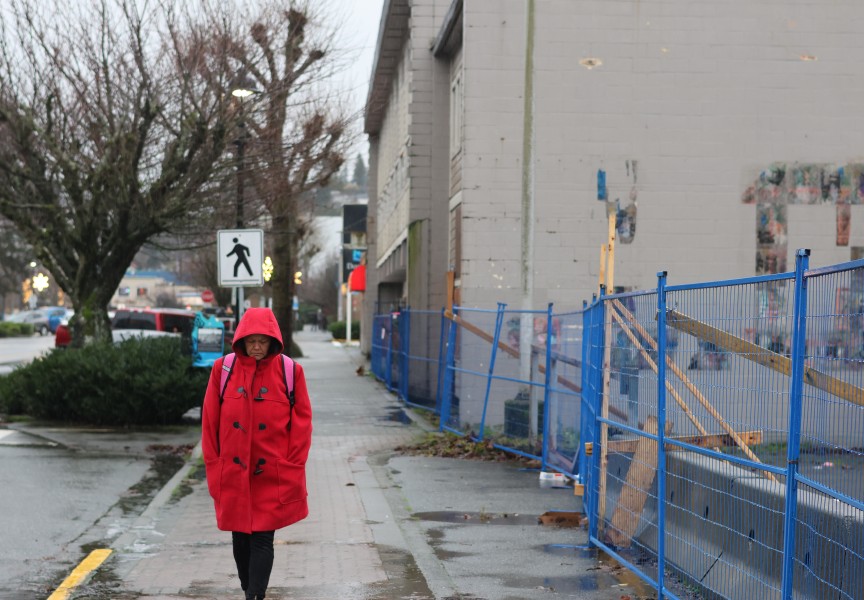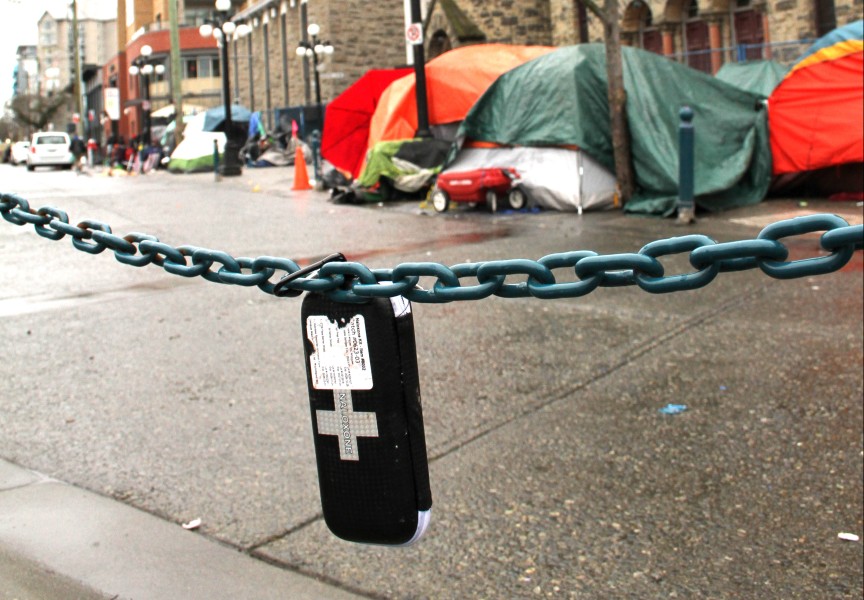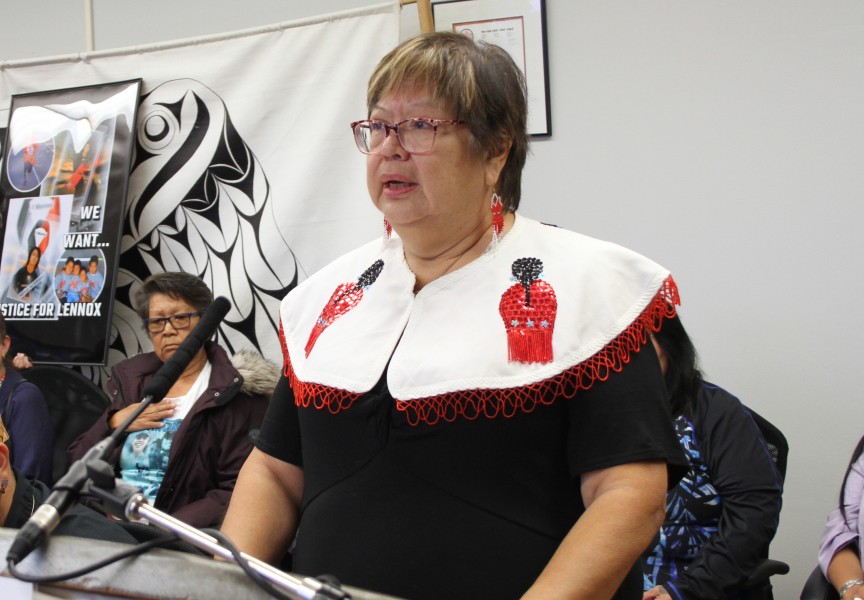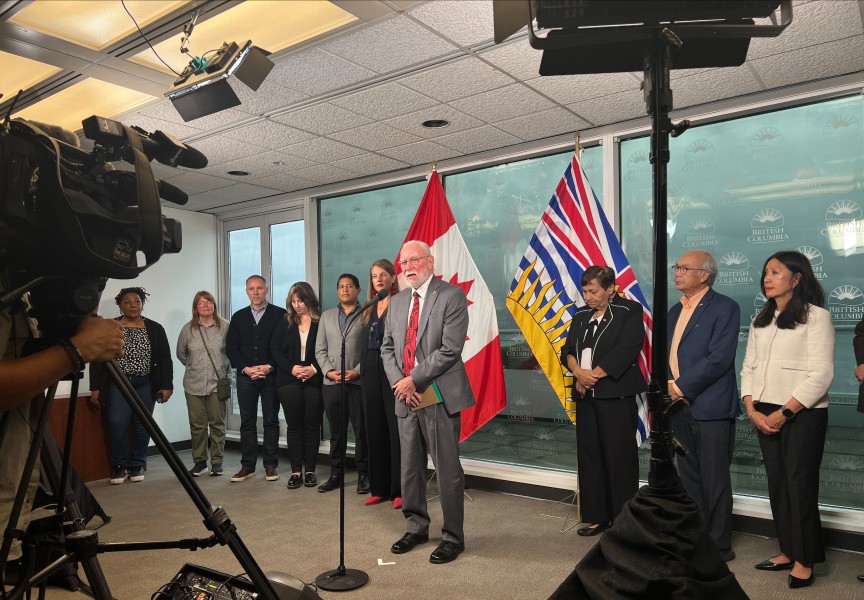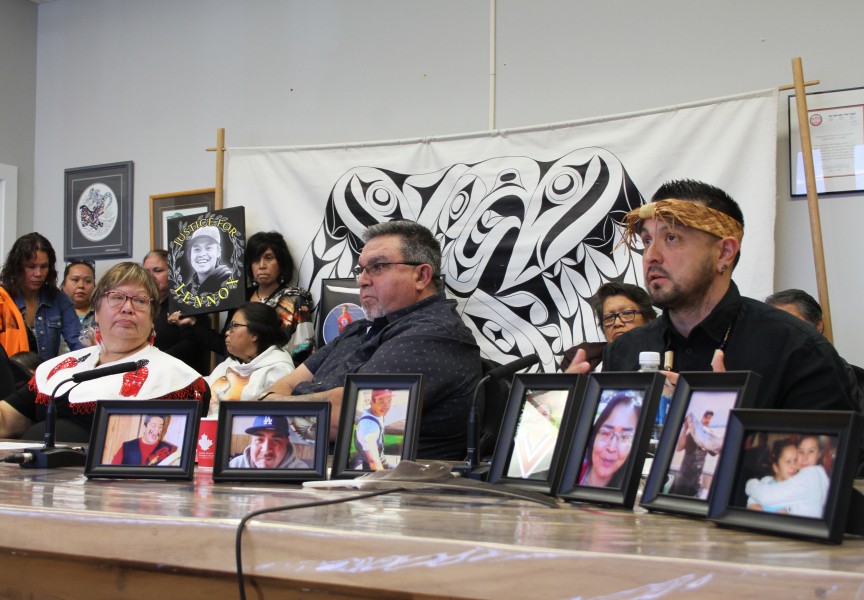Several Nuu-chah-nulth families are reeling after the sudden deaths of two young men from overdoses of toxic street drugs in Port Alberni over the weekend.
The BC Coroner’s Service confirms that they have been notified of the deaths and is investigating.
Sources say that three men were treated for drug overdoses at an apartment on the 3200 block of Third Avenue in the early morning hours of March 4. One young man was revived with Narcan, the other two could not be saved. One of the deceased males was a father of young children. The other two involved were in their teens.
A few days earlier, another male died of an illicit drug overdose, bringing the Nuu-chah-nulth death toll to three over the same week in Port Alberni.
Courtenay-Alberni MP Gord Johns acts as the NDP critic for Mental Health and Harm Reduction in the House of Commons. He was on his way to Ottawa when he heard of the weekend incident. While he didn’t have enough information to make a statement, he said he knew one of the teenagers.
“He would stay with us sometimes, in Tofino,” said Johns.
“This is a tragedy, this is an emergency, and where is the government?” asked Johns. “It’s sad that the message is not getting through.”
According to the BC Coroners Service, in 2022 there were 2,272 suspected illicit drug toxicity deaths in the province. This is the second largest number of suspected deaths ever recorded in a calendar year. In 2021 there were 2,306 deaths.
In November and December 2022 there were 182 and 210 suspected illicit drug toxicity
deaths, respectively. Those numbers amount to an average of about 6.4 deaths per day in British Columbia. On March 7 the Coroner’s Service released the latest drug toxicity deaths in the province for the month of January: 211 British Columbians.
On Vancouver Island there were 386 drug toxicity deaths in 2022 – an average of 1.5 per day on the island alone.
The BC Coroner’s Service includes the following in their definition of illicit drugs:
• Street drugs (controlled and illegal drugs: heroin, cocaine, MDMA, methamphetamine,
illicit fentanyl etc.).
• Medications not prescribed to the decedent but obtained/purchased on the street, from
unknown means or where origin of drug not known.
• Combinations of the above with prescribed medications
In the past four years, fentanyl has been detected in the post-mortem examinations of more than 80 per cent of toxic drug deaths in B.C., according to a report by the BC Coroner’s Service.
In an effort to shift this fatal trend, B.C. became the first province in Canada to decriminalize the possession of illicit street drugs, with an exemption granted from the Criminal Code of Canada on Jan. 30. Now individuals can legally carry up to 2.5 grams of illicit substances like cocaine, MDMA and methamphetamine.
At the federal level, MP Johns has been actively pushing for changes in laws that could help save lives. That includes calls on the Government of Canada to reform current drug policies like decriminalizing simple possession listed in the Controlled Drugs and Substances Act, and to provide a path for expungement of conviction records for those convicted of simple possession. The idea is to help reduce the barriers and stigma that prevent people from accessing lifesaving supports and services.
In addition, Johns has been promoting the idea of a safe, controlled drug supply. On Feb. 6 he introduced a petition in the House of Commons.
“Lastly, with urgency, they (petitioners) ask to implement a health-based, national strategy for providing access to a regulated safer supply of drugs and expand trauma-informed, just-in-time treatment, recovery, harm reduction services, and public education and awareness campaigns throughout Canada to save lives and take this epidemic head-on,” Johns stated.
There are many critics of overdose prevention sites but, according to the BC Coroner’s Service, they are saving lives. In their latest report, there was only one death in 2022 at a supervised site.
"As we continue to lose loved ones, the effects of the toxic drug crisis remain as some of the most urgent challenges we face as a province,” stated Jennifer Whiteside, minister of Mental Health and Addictions, on March 7.
The provincial government is pouring millions of dollars into treatment and prevention to help address the emergency. Whiteside says funding is going toward new treatment and recovery services, expanding overdose prevention and working to end the stigma around addiction.
“As the work continues illicit substances have become more toxic,” said Whiteside.
The province is investing $1 billion in Budget 2023 to accelerate mental healthcare and addiction services.
"We know that in order to connect people to treatment and recovery, we must first keep them alive,” Whiteside stressed.
The province has pledged to invest and expand harm-reduction measures throughout B.C. to separate people from the toxic, unpredictable illicit drug supply.
When it comes to safe supply to save lives, Whiteside stated that the provincial government has committed $184 million to support their response to toxic drugs, including adding more options for safe prescription alternatives, like diacetylmorphine.
“We are going to keep escalating our response to the toxic drug crisis by using all the tools in our toolbox to save lives and end this public-health emergency,” Whiteside said.
Johns offered his condolences to the families in an email to Ha-Shilth-Sa.
“My heart is with the families, friends and communities of the two young men who died while using toxic street drugs in Port Alberni last week,” he wrote. “Tragically, these are only the most recent deaths in our community as so many families are being torn apart by what has become the leading cause of unnatural death in our province.”
He went on to say that it is a myth that only those with opioid-use disorder are dying.
“In fact, public health experts tell us that the majority of people who are dying are not considered to be addicted,” Johns wrote. “Everyone who uses criminalized drugs is at risk of dying whether they use occasionally, often or have a diagnosed substance use disorder.”
He concurs with Minister Whiteside, that the first priority in addressing the toxic drug crisis is keeping people alive.
“Providing a safer drug supply alone will not resolve this public health emergency but it has to be an essential measure and it needs to provide a range of medication options that are consistent with the needs and substance use practices of those who are at risk,” Johns stated.
“At the same time, no-fee, publicly funded on-demand treatment must be available to help users address unresolved trauma,” he continued, adding that Indigenous people are disproportionately affected and must have access to culturally-appropriate treatment and proper mental health care. “May these two young people rest in peace and may we come together to resolve this scourge in our country.”


